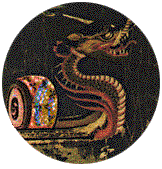ln late May, Tristan Harris, head of the Center for Humane Technology, appeared before the Digital, Culture, Media and Sport Committee of the UK's House of Commons. By video link, he testified on a bill with the title "Fake News" and described, among other things, the effects of unethical design by Facebook, YouTube, and Google. As I read this impressive testimony, I was struck by the fact that Harris's description of users of these applications didn't quite match me. Here are the ways in which I differ:
- I don't have a smartphone.
- I don't spend hours mindlessly watching video after video on YouTube.
- I don't follow friends' news feeds on Facebook.
Let me add to this a few more things that I think distinguish me from the people Harris was describing:
- I don't have a TV.
- I don't get my news on Facebook.
- I read print media, including newspapers, magazines, and books.
- I do much of my work (editing and proofreading) and writing (poetry and fiction) with pen and paper.
This makes me wonder how many people among the two billion Harris cites in his testimony are like me. Even if the percentage is just one-half of one percent, that is a million people. What role can this minority play in the manipulated, addicted culture Harris describes?
Free Will brought down by the villains of the Internet.
Choice
Here is what Harris says about choice in the digital culture:
We often see people who use Facebook as making a conscious choice—
think of the 150 times a day people check their phones, which we often
think of as 150 conscious choices. When I was a kid I was a magician, and
that teaches you to see this word “choice” in a very different way. The
whole premise is that, by controlling people’s attention, you can control
their choices.
The thing about magic—this is important, because it really speaks to the
framing for all the issues we are going to talk about today—is that it works
on all human minds, no matter what language they speak, no matter how
old or young they are, and no matter whether they are educated or not. In
fact, if they have a PhD, they are usually easier to manipulate. In other
words, there are facts about the hardware of the human mind, and that
gives you a reference point for asking, “Are there facts about how to
manipulate and influence any human mind that your audience won’t
know?” The answer is, of course, yes.
I believe that as long as you have choice, you have control. Harris is saying that this is not the case: your attention is being controlled, and therefore, the “choice” you exercise is an illusion. Facebook, YouTube, and Google have reduced the number of choices you have to the few that profit them.
Social engagement sans social media
Not counting the lunch meeting I had a few days ago, my get-together with friends today was the first of seven social engagements I have this month—all arranged without the benefit of phone or Facebook. I met my friends A, M, and S at a Greek restaurant, and no cellphone peeked out or buzzed during the ninety or so minutes we were there. A does not have a cellphone, and M and S, who are married, have smartphones under a family plan.
Of the four of us, S is the most popular socially. A retired English teacher with hundreds of Facebook friends, she has the kind of humor that is both self-deprecating and witty. I was reminded of how good it felt to be with people I love and to share experiences, stories, and jokes. Beyond the reach of the Internet, we exercised our choice to laugh, share, and empathize, and these seemed like the best things we could be doing.
Bold claims
I'm going to step out on a limb and make the following claims:
- Through the constant use of digital devices, we are turning into human batteries. We think we are plugged into our devices, but actually they are plugged into us. We are the source of the energy running them, and the more we use them, the more we modify ourselves to suit their requirements. To break this circuit, we need to wake up from the spell the digital culture has cast over us.
- Those of us who are different from our fellow human beings can play a couple of minority roles, either active or static. We can proselytize and try to convert others to be like us, or we can anchor ourselves in the bedrock and let social and cultural currents flow against us. Or, of course, we can do a bit of each.
- Synergy requires presence, direct involvement. The kind of intellectual and emotional development that we prize comes from being in the presence of people we care about and admire—not for achieving success or recognition but for having qualities we value. At the lunch meeting I mentioned above, three of us—the head of my office, an outside project manager, and I—discussed short- and long-term plans for a big publication we are involved in. We have been emailing almost daily, sometimes more than once in a day, but meeting face-to-face was critical to the realization of our plans.










